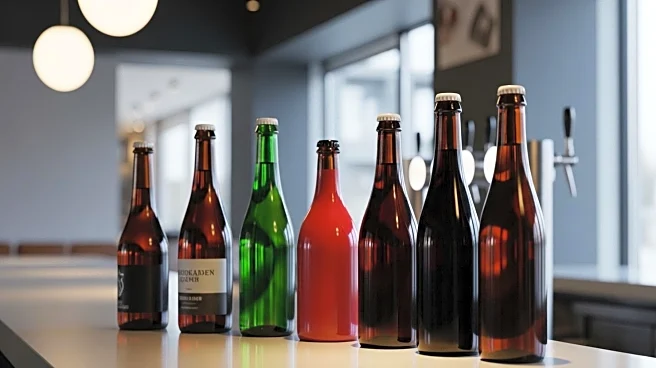What's Happening?
Amid growing health concerns, Americans are reducing their alcohol consumption, prompting brewers to innovate with new products. A Gallup survey indicates that only 54% of U.S. adults currently consume alcohol, the lowest on record. In response, companies like Heineken are expanding their nonalcoholic offerings, such as Heineken 0.0 Ultimate, which boasts zero alcohol, calories, and sugar. This shift is part of a broader trend where brewers are focusing on nonalcoholic and low-alcohol products to meet changing consumer preferences.
Why It's Important?
The decline in alcohol consumption reflects a significant shift in consumer behavior, driven by health concerns and economic factors. This trend presents both challenges and opportunities for the brewing industry. Companies that successfully adapt by offering healthier alternatives could capture a growing market segment and potentially increase their market share. The emphasis on nonalcoholic products also aligns with broader health and wellness trends, suggesting a long-term shift in consumer preferences. This could lead to increased competition among brewers to innovate and differentiate their products in a changing market landscape.
What's Next?
As brewers continue to adapt to declining alcohol consumption, the industry may see increased investment in research and development to create new, innovative products that cater to health-conscious consumers. This could lead to a broader range of nonalcoholic and low-alcohol options becoming available in the market. Additionally, brewers may explore partnerships with health and wellness brands to further align their products with consumer trends. The success of these initiatives could influence other sectors of the beverage industry to prioritize health-focused innovations.









